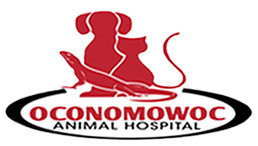Guinea pigs and rabbits require free choice high-quality hay as the staple of the diet. Species-appropriate pellets should be a small part of the diet along with fresh greens and a fresh source of Vitamin C for guinea pigs.
IT IS AN EMERGENCY IF A RABBIT OR GUINEA PIG ISN’T EATING AND THEY NEED TO SEE A VETERINARIAN AS SOON AS POSSIBLE!
Housing: Provide as large a cage/enclosure as you can manage. If you keep your pets outdoors they will need a predator-free enclosure or be on a harness/leash with you at all times. Keep electrical cords and strings away from rabbits.
Common health problems:
NUTRITIONAL problems are the most common issue we see. Diets high in fat (seeds/fruits/treats) and inadequate amounts of roughage for tooth wear lead to dental problems, obesity, skin problems, and even death.
PARASITES are very common, of both the internal and external varieties. Have any new addition to your home examined before it’s introduced to any other pets.
ABOVE ALL: Research the individual needs of a pet before getting one. You can always call us to consult about what type of ‘pocket pet’ may be best given your living situation BEFORE you get one. A new pet exam is recommended for all of these small, furry friends so we can identify and head off problems before they start.

 Pocket Pet refers to small animals such as guinea pigs, hamsters, hedgehogs, mice, rats, gerbils, chinchillas, and rabbits. All of these wonderful pint-size creatures require specialized care, so reading up on them before bringing one into your home is very important for their health and well-being.
Pocket Pet refers to small animals such as guinea pigs, hamsters, hedgehogs, mice, rats, gerbils, chinchillas, and rabbits. All of these wonderful pint-size creatures require specialized care, so reading up on them before bringing one into your home is very important for their health and well-being.